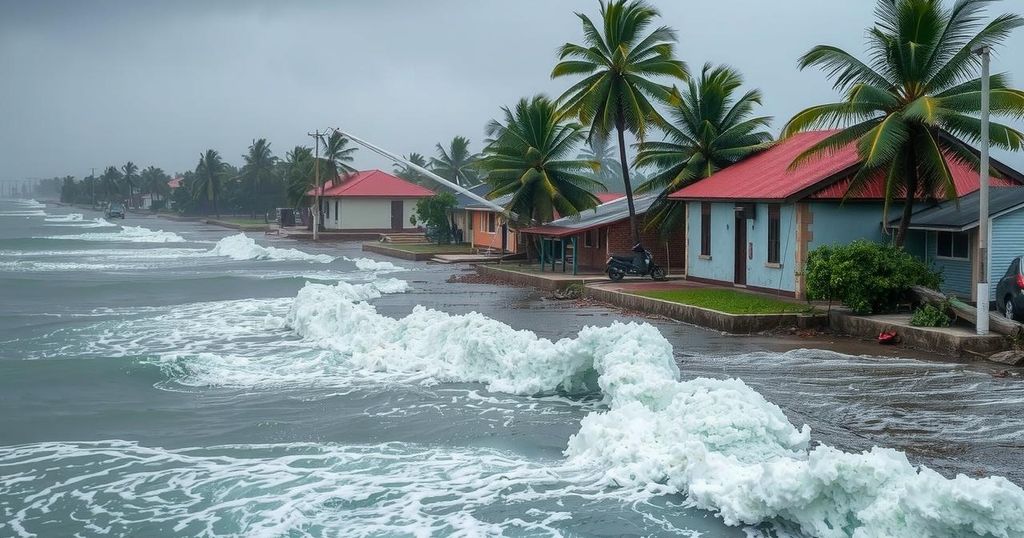Cyclone Chido Devastates Mozambique, Death Toll Rises to 120

Cyclone Chido has devastated northern Mozambique, resulting in 120 deaths and affecting approximately 680,000 individuals. The cyclone caused the destruction of over 140,000 homes and significantly impacted the educational and health infrastructure. Authorities have set up emergency shelters for the displaced, indicating an urgent need for humanitarian aid and resilient planning against climate change.
The devastation caused by Cyclone Chido in Mozambique continues to escalate, with the confirmed death toll now reaching 120 individuals, alongside 868 injuries and an alarming 680,000 people affected. The latest report from Mozambique’s National Institute for Disaster Risk Management and Reduction (INGD) highlights the extensive damage in northern provinces, particularly Cabo Delgado, Nampula, and Niassa, where the cyclone made its landfall on December 15. The heavy downpours and subsequent flooding have resulted in the destruction of over 140,000 homes, impacting approximately 123,000 families, roughly 622,610 people. Furthermore, educational and health infrastructure has suffered with 250 schools, 89 public buildings, and 52 health facilities reported as damaged. In a bid to address the ongoing humanitarian crisis, the government has established emergency shelters currently accommodating 1,349 displaced individuals. The INGD has underlined the dramatic implications of Cyclone Chido for the health and education sectors, advocating for strategic resilience planning in response to the negative impacts of climate change.
Cyclone Chido, a destructive tropical cyclone, originated over the southwestern Indian Ocean on December 5 and made landfall in Mozambique shortly thereafter. The cyclone has severely impacted the northern regions of Mozambique, with storms and flooding exacerbating the damage caused to infrastructure and displacing thousands of residents. Disasters such as Cyclone Chido spotlight the urgent need for adequate emergency response measures and systemic resilience against climate-induced events, a concern that has gained prominence in light of recent events worldwide. The ongoing humanitarian response involves the government and various international organizations working collaboratively to provide necessary aid to those affected by the calamity.
In summary, Cyclone Chido has inflicted substantial damages and loss of life in Mozambique, particularly affecting the northern provinces. With a total of 120 reported fatalities, extensive injuries, and widespread destruction of homes and infrastructure, the situation remains dire for the affected communities. The government’s response, including the establishment of emergency shelters, is a critical step in addressing the immediate needs of the displaced population. Continued support and intervention from international humanitarian agencies are essential to mitigate the aftermath of this disaster and aid in recovery.
Original Source: www.socialnews.xyz








